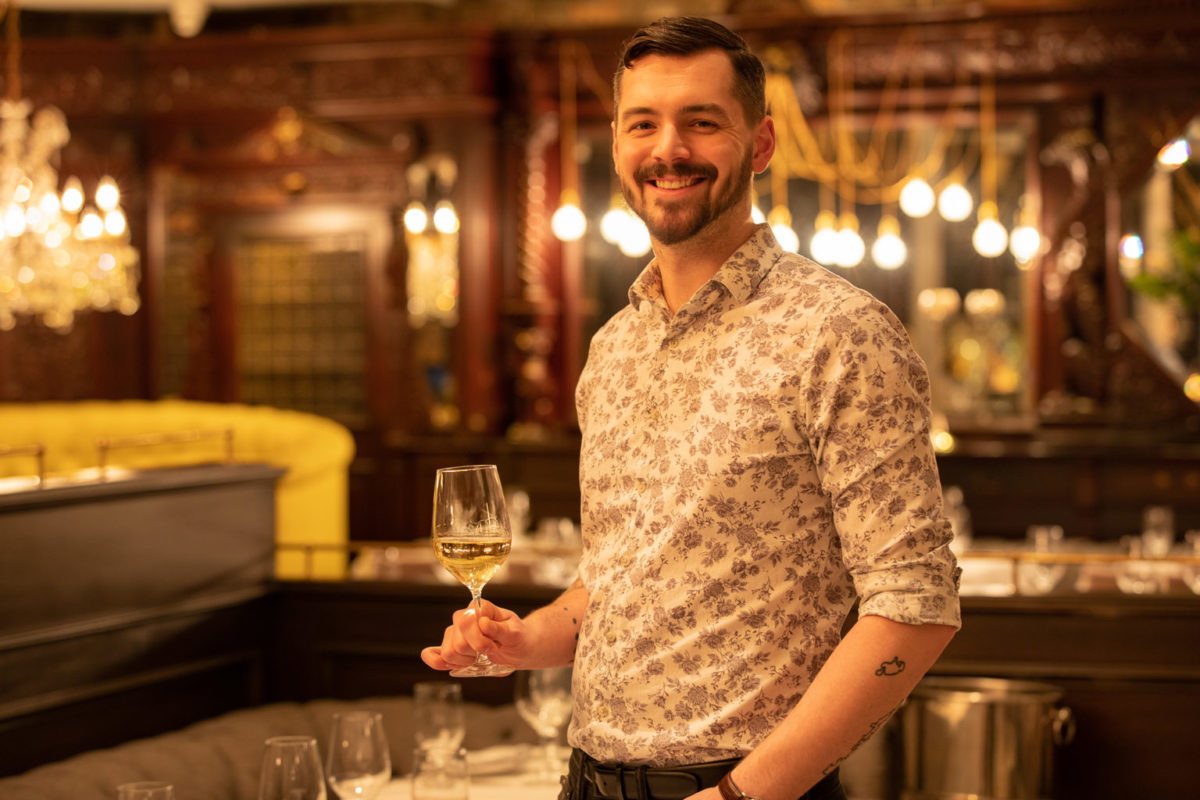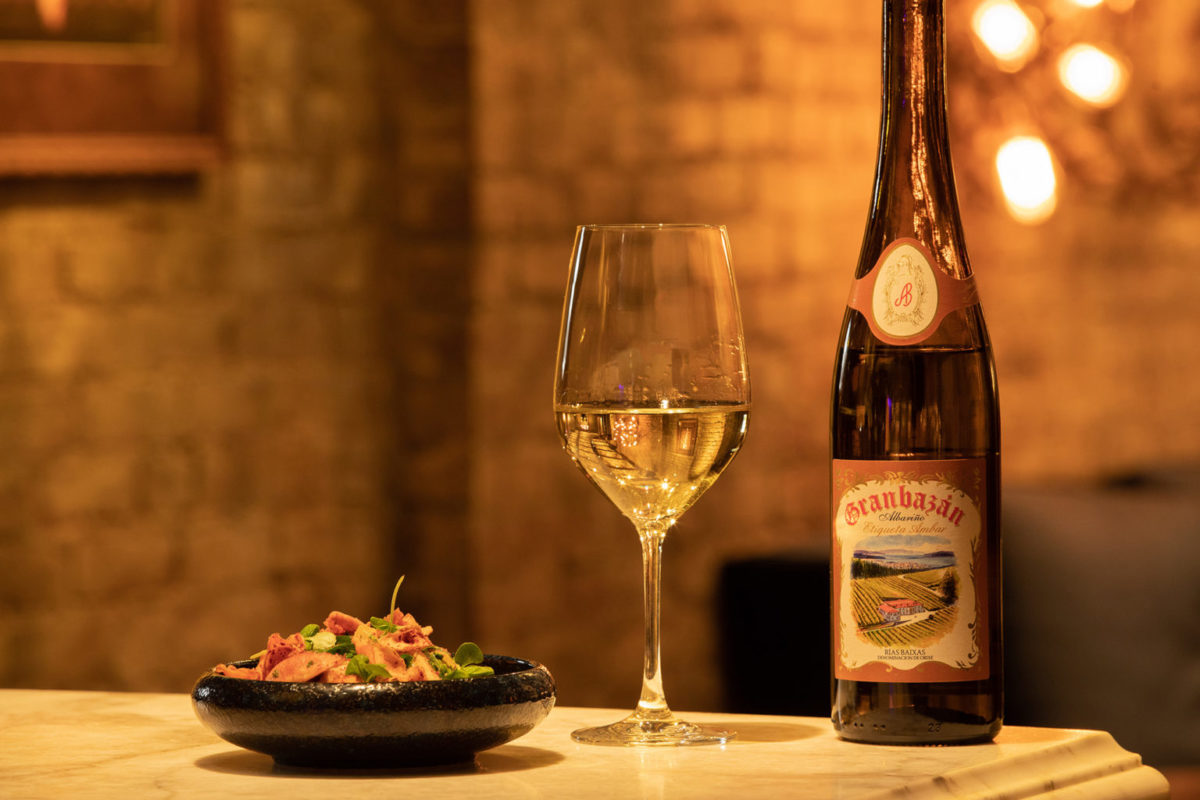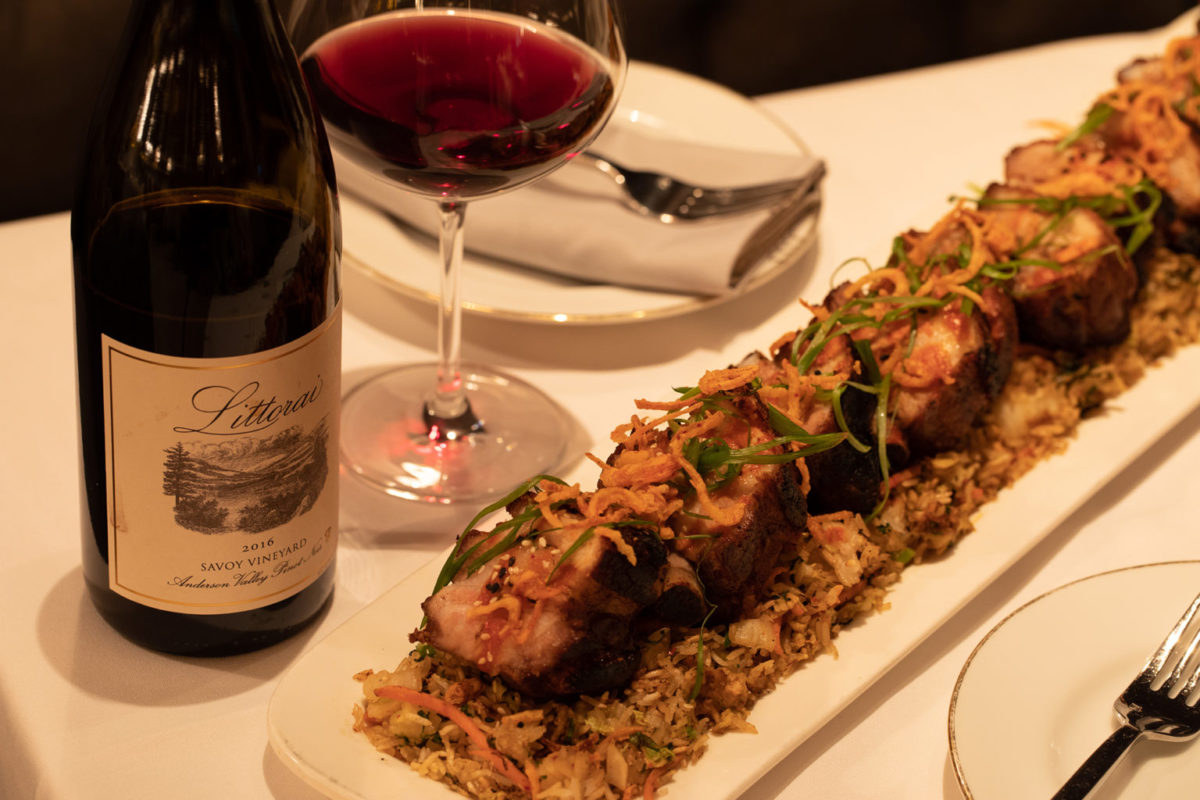
Nick Morisi · Yvonne's

Mary Kurth · Spoke Wine Bar
Olivia Rose Vienneau · Sycamore
Curious about restaurant wine lists? Each month, Boston Globe wine columnist Ellen Bhang chats with a sommelier about a couple of terrific bottles and recommends food pairings—you come away a savvier sipper.
When it comes to a particular winemaker he admires, Nick Morisi wears his heart on his sleeve. His admiration, in fact, is permanently inked on his shoulder.
“I have a tattoo of a lemon with a crown,” mentions the general manager and sommelier of Yvonne’s in Downtown Crossing. The tattoo artists at the studio he frequents are no longer surprised by the sketches he brings in. “They say, ‘This is the kid with the weird requests who works in wine,’” he explains with a chuckle.
The individual who inspires such fervor is Ted Lemon, the owner and winemaker of Littorai, in western Sonoma County, California. After enology studies in Dijon, France, Lemon found himself in his mid-20s as winemaker and vineyard manager of Domaine Guy Roulot in Meursault, Burgundy. As the first American to achieve the distinction, he earned the nickname “Le Comte de Citron,” which Morisi translates loosely as “Lemon King.”

The somm loves how Lemon’s wines convey a sense of place. The winemaker pays meticulous attention to site selection—identifying plots of land where soil, slope, and climate provide optimal growing conditions for specific varietals. Morisi also admires how the winemaker eschews any notion of one-size-fits-all, tailoring biodynamic practices to the needs of individual vineyards.
Morisi, a native of Medfield, Massachusetts, envisioned a career in law or politics when he began college at Northeastern University. But internships in both fields proved unsatisfying. What excited him was the fast-paced energy of Petit Robert Central, the now-shuttered French restaurant in downtown Boston where he worked part-time. Realizing he needed a better grasp of wine, he enrolled in a class at Boston University. “That sealed the deal,” he recalls, noting how much he enjoyed being taught by two Masters of Wine throughout the semester. The experience cemented his desire to work in the industry.
After a stint as an assistant buyer at a wine shop and bar in San Francisco, Morisi got an offer to return to Massachusetts and oversee the wine program at Yvonne’s. Today, his list encompasses 250 bottles and 15 by-the-glass options drawn from both the Old World and the New. Each conveys an unmistakable sense of place.

One such bottle is a 2017 Granbazán “Etiqueta Ambar” Albariño. It hails from the Galician region of Rías Baixas in Spain’s northwest. “There’s such an intense ocean influence there,” says the somm, talking about vineyards carved out of rugged terrain, just inland from the Atlantic. The full-bodied, salty-on-the-finish white is excellent alongside executive chef Mark Cina’s Octopus Taverna. The cephalopod is slow-simmered, thinly sliced into coins, seared crisp on a hot plancha, and tossed with a garlicky yogurt dressing. The seafood is plated with golden beets on a skordalia-like sunchoke puree.
No list under Morisi’s watchful eye would be complete without his favorite winemaker. A 2016 Littorai Pinot Noir is crafted from fruit grown in the highly regarded Savoy Vineyard, located in Mendocino County’s Anderson Valley. The vineyard’s location allows the finicky varietal to ripen at a deliberate pace so that phenolics—compounds that contribute to mouthfeel, flavor, and hue—develop fully.

Morisi pours this wine alongside the Grilled “Viper” Chop, one of the large sharable platters in the “Feasts” section of the menu. Pork short ribs are arranged on a steaming bed of kimchi fried rice, drizzled with a Korean red pepper condiment, and adorned with crispy fried shallots. He loves how the elegant pinot noir expresses savory dark fruit and notes of black tea. And because the wine’s alcohol is not overblown like other styles of California pinot noir, this red doesn’t clash with the spicy heat of the dish. It’s just one more example of the winemaker’s attention to detail.
“Ted’s approach is one of not doing anything halfway,” Morisi enthuses. He could easily be talking about himself.










